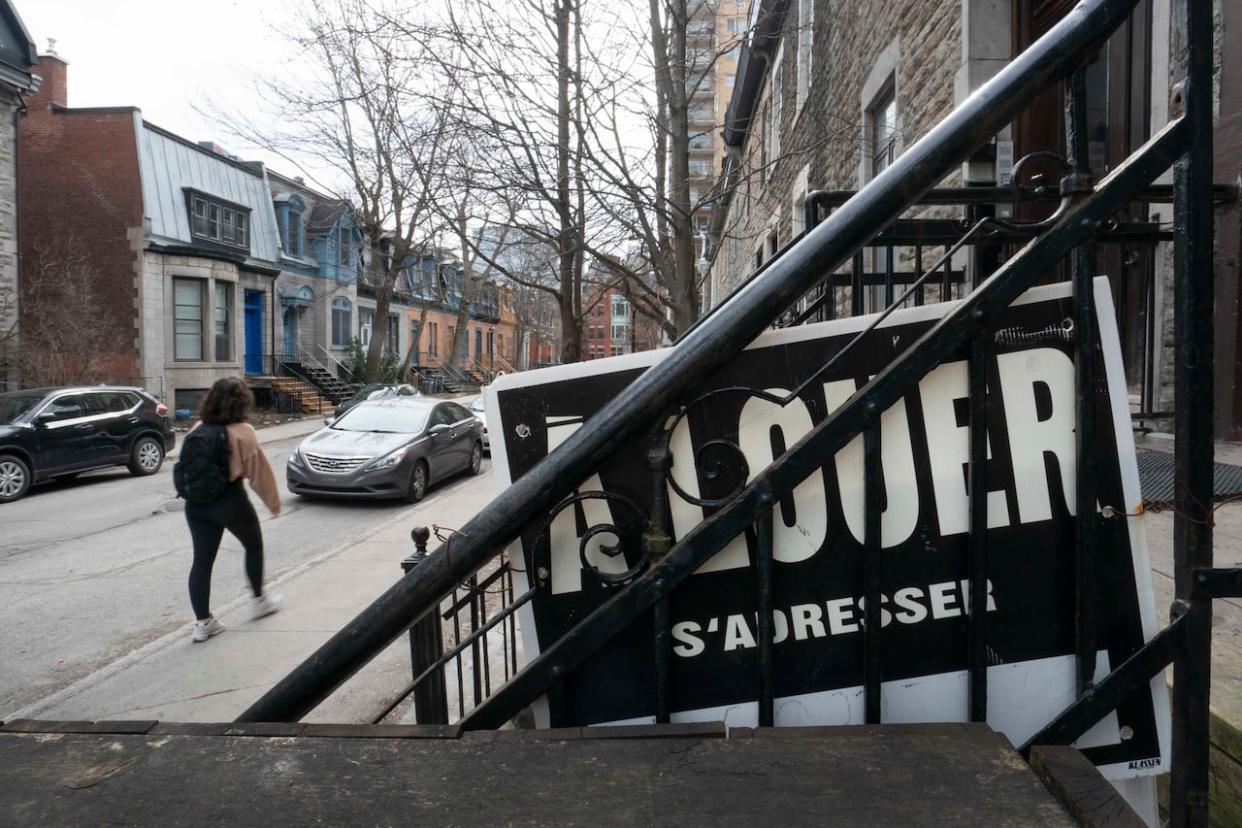Evictions in Quebec at an all-time high, report by tenants' group says

The group representing tenant associations in Quebec says there was a record number of "forced evictions" in the last year.
A report by the Regroupement des comités logement et associations de locataires du Québec (RCLALQ) tallied the number of cases reported to its member organizations between July 2022 and June 2023. It found that more than 3,530 tenants filed complaints about being forced out of their dwellings — a 132 per cent increase from the previous year.
"Unfortunately, this confirms a lot of what we're seeing on the ground, which is that repossessions and evictions are just going through the roof," said Amy Darwish, co-ordinator at Comité d'action de Parc-Extension (CAPE).
The report showed that evictions are no longer a Montreal phenomenon but have spread to other regions. About 190 people were evicted in Lanaudière, 160 in Saint-Jérôme, 135 in Mauricie and 132 in St-Eustache.
"All corners of the province are now affected by that," said Darwish. "It seems it's very much a Quebec-wide thing now. I think it speaks to the need for real measures to deal with it."
RCLALQ spokesperson Cédric Dussault says landlords are increasingly using illegal means to evict tenants, like false repossessions, renovictions and putting undue pressure on tenants to leave.
"We see people who are getting harassed every day by their landlords, we see landlords who are literally stripping away dwellings to make it unlivable for tenants," he said.
Dussault says in one case, a landlord removed the front door of a tenant's apartment and refused to replace it. He says in many cases, tenants who were paying low rent end up evicted and on the streets.
Tenants not well-protected
The report shows evictions have become more and more frequent in the last few years. Between 2020 and 2023, evictions and repossessions increased six-fold, according to RCLALQ data. And those numbers only include reported evictions.
"It's a pretty dark portrait that we're seeing in our organization in the last years," said Dussault.
Quebec's housing minister agrees, and a statement from her cabinet said "she realized that tenants were not sufficiently protected in the event of eviction or repossession notices."
A new bill would include measures to better protect tenants from evictions, said Justine Vézina, a spokesperson for the minister. For example, Bill 31 proposes reversing the burden of proof in eviction cases, meaning that a tenant who fails to respond to an eviction notice will be presumed to have refused to vacate the dwelling. As well, mandatory indemnities will be increased from a minimum of three months to a maximum of 24 months.
But CAPE's Darwish says though that would take some pressure off tenants, it doesn't solve the underlying problem.
Housing committees are calling for a moratorium on repossessions and evictions when vacancy rates are low, a tougher process for landlords to get permits to carry out evictions and rent control measures. They also want more social housing.
But Martin Messier, president of the Quebec Landlords' Association, says building owners can't be entirely blamed for the housing crisis.
"There's a problem that needs fixing and it's not by only asking the landlord to support that part that we'll get good results," he said.
He agrees with advocates that the government needs to do more to support tenants rather than constrict landlords.
Advocates say both are necessary.
"Unless we address two problems — the evictions themselves and the skyrocketing rents — we won't solve the severe housing crisis that we are facing in Quebec," said Dussault.
LISTEN | What's happening with evictions in Quebec:

